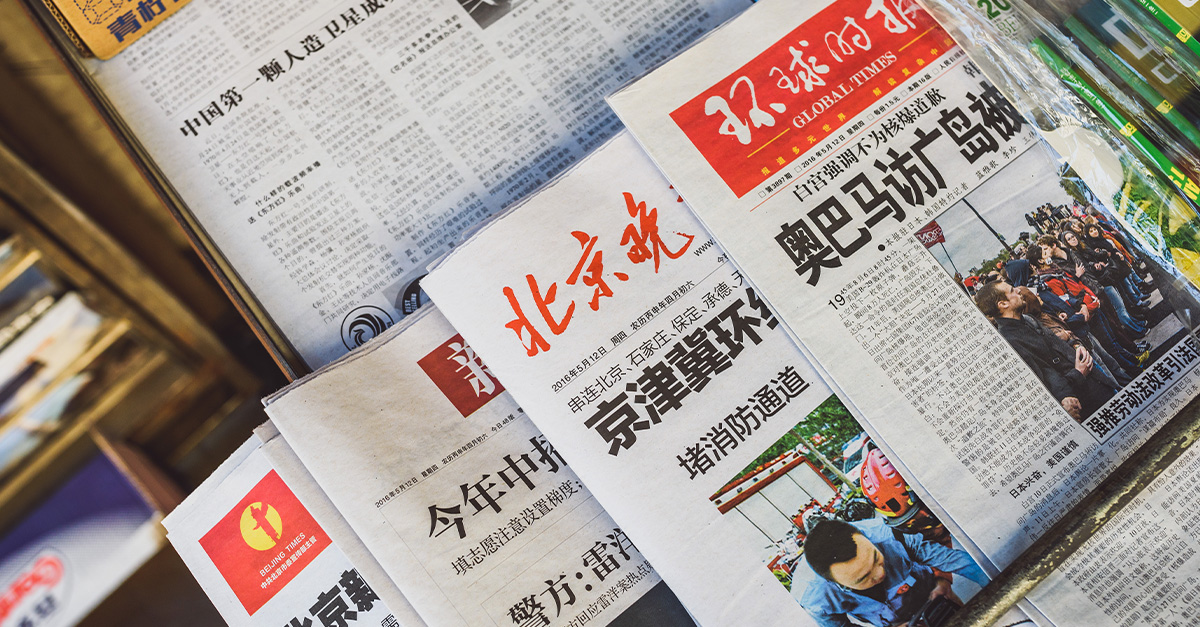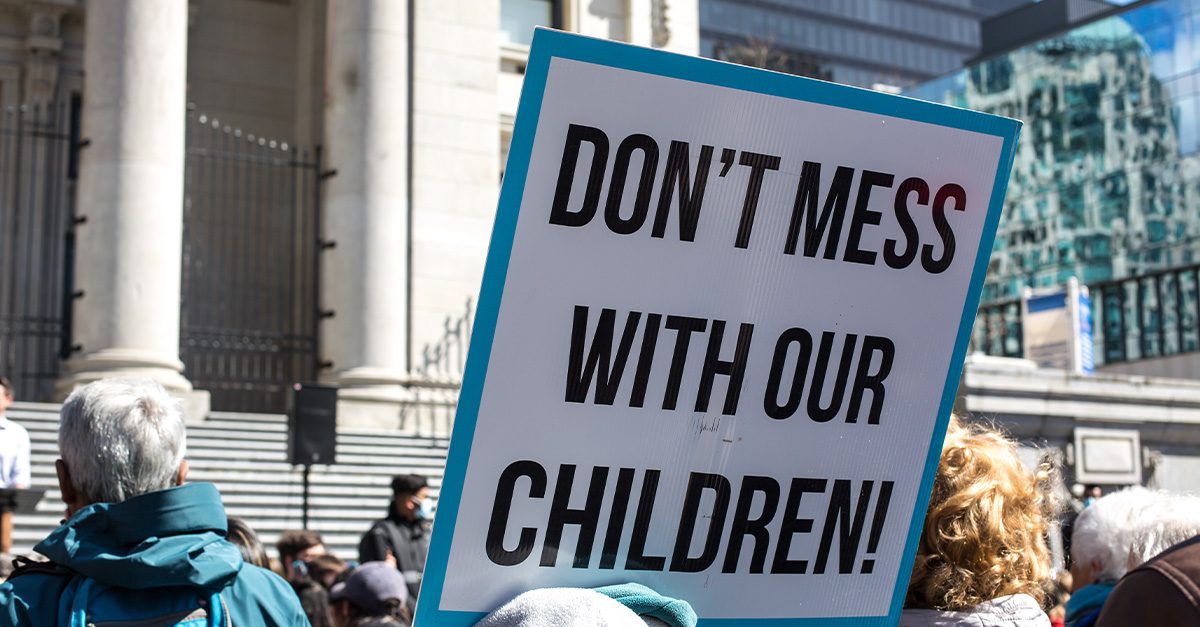


Get a free copy of Parental Rights & Education when you subscribe to our newsletter!

The Biden administration and the Chinese government have reached an agreement to ease restrictions on one another’s journalists following President Joe Biden’s recent talks with President Xi Jinping.
“We are gratified their correspondents will be able to return to the [People’s Republic of China] to continue their important work,” the U.S. State Department said of the agreement, according to The New York Times. “We welcome this progress but see it simply as initial steps.”
After China expelled American reporters in March 2020, then-President Donald Trump, in turn, limited visas for Chinese journalists to 90 days.
Now, Chinese journalists will be able to enjoy year-long visas, during which they may travel back and forth between the U.S. and China freely.
Meanwhile, reporters from three major U.S. outlets — The New York Times, The Washington Post, and The Wall Street Journal — may travel to China.
The State Department noted that it “will continue to work toward expanding access and improving conditions for U.S. and other foreign media, and we will continue to advocate for media freedom as a reflection of our democratic values,” but it did not specifically mention press freedoms in the previously liberal, autonomous Hong Kong, where Beijing-led crackdowns over the last two years have severely restricted the free press there.
Journalists from each country will have to satisfy visa requirements according to the law of each respective nation. The specifics of the agreement remain unclear, such as whether reporters who were ejected last year will be allowed to return to their previous beats.
All the same, there is tentative hope within the media. The Times reported that Almar Latour, the publisher of the Wall Street Journal, said in a statement that “we’re encouraged by the reported direction of these negotiations and continue to believe that independent, accurate reporting from within China serves our readers and serves China itself.”
The decision is also being touted by both nations as a major step towards improved relations that were damaged during the Trump administration.
But are they, indeed, a step towards independent, accurate reporting from within authoritarian China?
I’m not holding my breath.
On the one hand, the major news outlets in China, which include The People’s Daily, Beijing Daily, and New China News Agency, are all run by the state. China Daily, the largest English-language news outlet in China, is operated by the Chinese Communist Party (CCP). The U.S. State Department considers it to be a foreign agent and requires it to disclose its activities under the Foreign Agents Registration Act.
So, Beijing, which already heavily curates the news the Chinese people read, as well as the information they are allowed access to on social media and the Internet in general, will now simply have more freedom to send their state-approved propagandists to American shores to spin the news here to the liking of the CCP.
Our own media, meanwhile, will be represented in China by reporters from outlets that have all previously taken money from Chinese state-run media to run full-page advertorials that appeared to be legitimate news pieces.
Earlier this year, the Washington Free Beacon reported that all three outlets — the NYT, WaPo, and the Wall Street Journal — were forced to sever ties with China Daily after taking millions to print its “China Watch” column, i.e. pro-China state propaganda.
It’s unclear if this has anything to do with the fact that, last year, the NYT published an op-ed from a Hong Kong executive defending the Beijing crackdown in the autonomous region, which was subtitled, “After months of chaos in the city, something had to be done, and the Chinese government did it.”
A few months later, Hong Kong’s major pro-Democracy newspaper, Apple Daily, was forced to shutter its doors after several of its executives were arrested and its assets seized under the new national security law.
This is what China did to address “months of chaos in the city”: Target and destroy one of the last beacons of free speech that Hong Kongers had left.
Over the last five years, the American press has portrayed itself as the champions of transparency in democracy, yet they’ve been willing to not only take millions to turn some of our nation’s greatest newspapers into platforms for Chinese propaganda but also platforms to defend attacks on the critical Western-style freedoms that we’ve watched vanish in Hong Kong in rapid succession.
And now we’re expected to believe that our own journalists won’t be under the thumb of China’s authoritarian state?
Mind you, this is a nation where if a high-profile tennis star accuses a former official of rape, she can literally disappear as the state-run media publishes dubious “evidence” that she’s perfectly fine, as happened just this week. Other powerful and well-known Chinese citizens have also been disappeared — both physically and virtually — by the CCP, including billionaire Jack Ma, actress Zhao Wei, and artist and dissident Ai Weiwei.
On the world stage, China has a habit of sanctioning political critics of its various human rights abuses in Hong Kong and the Xinjiang province or its encroachment on Taiwanese sovereignty. That includes journalists and media companies. Less than a year ago, the CCP banned the BBC from broadcasting from within China after it criticized the CCP’s coronavirus reports and human rights violations against the Uighurs and other minorities. The CCP stated that the BBC brought the ban on itself by bringing “harm” to “China’s national interests.”
Meanwhile, the American entertainment industry routinely kowtows to Beijing’s strict government censors by tailoring content in films to pass muster for China’s lucrative consumer market and intimidating American celebrities into submission should they dare suggest that Taiwan is a “country.”
Given all of this, the idea that individual journalists from U.S. newspapers will have some kind of free rein to go where they want, interview unapproved sources, investigate government corruption or allegations of human rights violations, report the “truth” of life in China, or criticize CCP leadership is sheer delusion.
This agreement between President Biden and President Xi to exchange journalists doesn’t increase transparency, it enables propagandists and further empowers Beijing’s stranglehold on the free speech rights of its own people — and it will only result in an even more aggressive encroachment on our own ability to expose the CCP’s abuses and lies.
